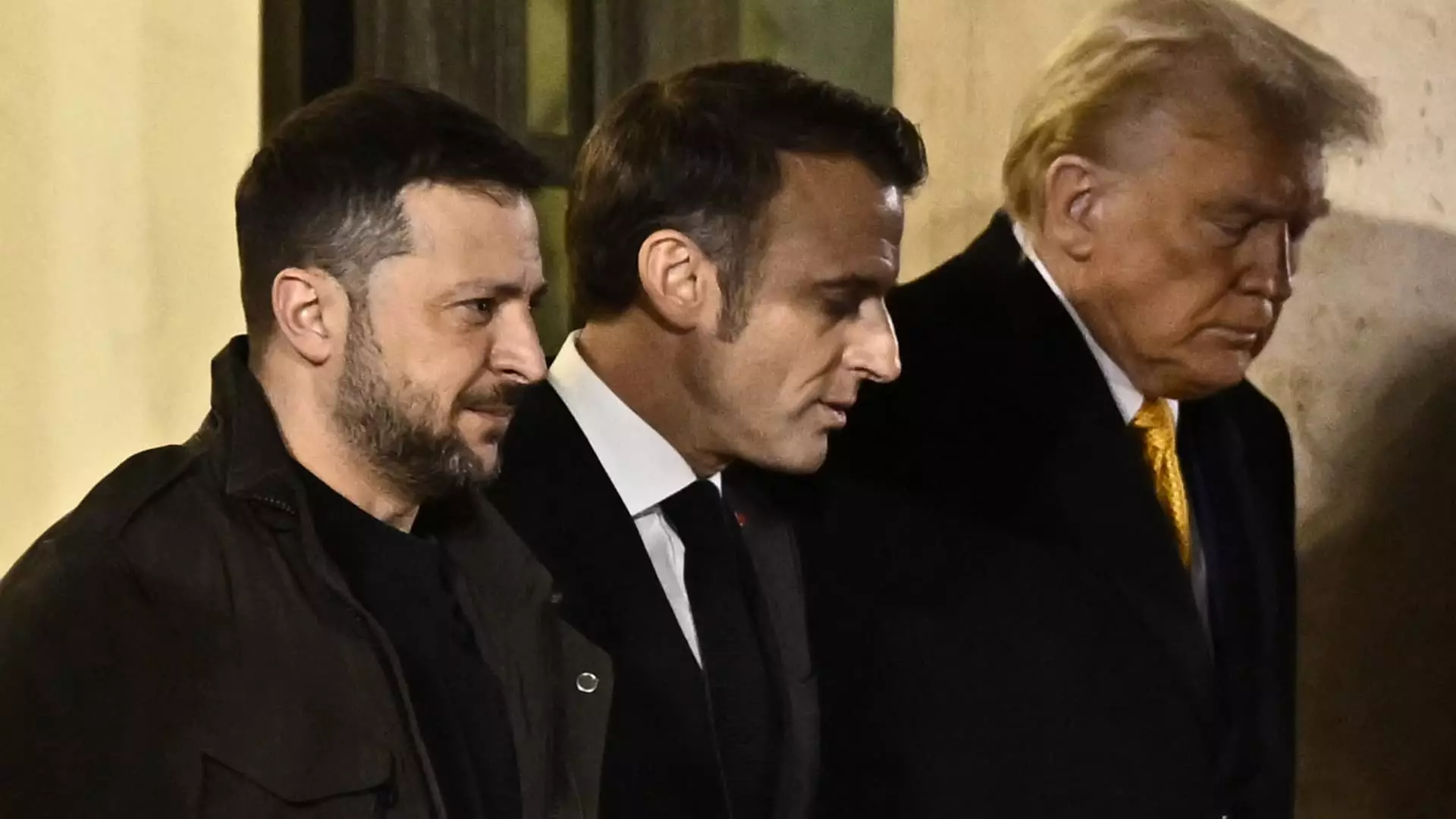In the intricate web of international relations, the ongoing conflict between Russia and Ukraine has sparked serious debates regarding the roles of various global players. As peace talks gather momentum, particularly with new negotiations set to occur in Saudi Arabia, the involvement of European nations is becoming increasingly urgent. Recently, European leaders have voiced concerns that their influence might be overshadowed by American diplomacy, with discussions led by key figures from the U.S. administration. The urgency of this situation precipitated an emergency summit in Paris, convened by French President Emmanuel Macron, highlighting the complexities and sensitivities surrounding Europe’s role in ending the nearly three-year conflict.
One of the most critical issues in the current landscape of peace talks is the absence of European representatives at the negotiating table. U.S. Special Presidential Envoy, Keith Kellogg, stated that the format of these discussions would not include a broad coalition, raising concerns regarding the sidelining of European nations. This decision emphasizes the delicate balance of power and influence in global diplomacy, reflecting a preference for direct negotiation between the U.S. and Russia. Additionally, Russian Foreign Minister Sergei Lavrov’s comments questioning Europe’s role in the discussions pose a fundamental problem, suggesting a deeper rift in the diplomatic approach to the crisis.
Concerns about a U.S.-centric strategy are indeed warranted. Ukrainian President Volodymyr Zelenskyy has made it clear that his government views any negotiations about Ukraine that do not involve Ukrainian representatives as futile. This sentiment reflects a growing tension in international relations: can significant peace agreements be effective if they exclude the primary stakeholders? As Zelenskyy prepares to attend the summit in Riyadh without direct participation in the initial talks, questions linger about the authenticity and viability of such diplomatic efforts.
Prominent voices within the European Union are steadfast in their belief that genuine peace cannot be brokered without their presence. European Commission President Ursula von der Leyen articulated the sentiment that neglecting European involvement would weaken not only the continent itself but also the standing of the United States on the global stage. Such assertions underscore the need for a united front among European nations, emphasizing that security in Europe is interlinked with European engagement in the negotiation process.
Moreover, Kaja Kallas, the EU’s foreign policy chief, asserted that the European perspective is invaluable to the negotiations due to its direct implications for the continent’s safety and political integrity. “For anything to work it has to have Ukrainians and Europeans as a part of it,” she said, emphasizing the crucial operational role that both parties will play in the potential implications of any agreement reached.
In response to the perceived neglect, the emergency summit in Paris brought together leaders from across Europe to forge a cohesive strategy that could strengthen their negotiating position. Figures, such as Germany’s Chancellor Olaf Scholz and Poland’s Prime Minister Donald Tusk, are crucial players in this diplomatic dialogue. This gathering signifies a willingness to not only assert Europe’s necessity in negotiations but also to craft a unified strategy to present to both the U.S. and Russia.
The involvement of the U.K.’s Prime Minister Keir Starmer adds another layer of complexity. His commitment to bolster U.S.-European relations and potentially provide military support demonstrates the seriousness with which European leaders are approaching this matter. There is an implicit understanding among these leaders: European defense is closely tied to the resolution of the Ukraine crisis, which illuminates the potential ramifications of a protracted conflict for the continent’s stability.
As the world watches the developments in the Russia-Ukraine peace negotiations, the importance of Europe’s involvement cannot be overstated. The current dynamics indicate that a comprehensive and sustainable resolution will require the collective efforts of the U.S., Europe, and Ukraine itself. The delicate interplay between these parties highlights the necessity for unity, strategic engagement, and clear communication to achieve a lasting peace. Europe’s historical context, regional understanding, and security needs must be factored into any discussions for a peaceful resolution, as the consequences of neglecting European influence could resonate well beyond the borders of Ukraine. Ultimately, redefining roles and fostering collaboration among these key players is essential for navigating the intricate path towards peace.


Leave a Reply